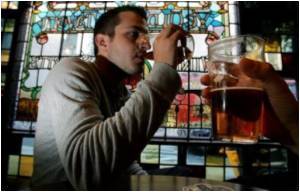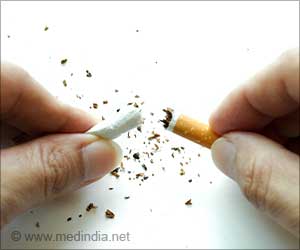A new study has found that alcohol-related driving-risk behaviours among college students become worse at the age of 21.

"College students have limited driving experience, making drinking and driving possibly even more hazardous. [While] other studies have examined drinking and driving among college students, to our knowledge this is the first to have examined how the behavior changes over time in the same sample of students," Arria added.
Arria and her colleagues recruited 1,253 first-time, first-year students (645 females, 608 males) attending a large, mid-Atlantic university. All were invited to be interviewed annually for four years regarding their alcohol-related traffic risk behaviours (with 88-91 percent follow-up rates); access to driving a car was also determined annually.
Three alcohol-related traffic risk behaviours were examined: riding with a driver who was under the influence of alcohol (RWID), driving after drinking any alcohol (DAD), and driving while intoxicated (DWI).
The results showed that risky alcohol-related traffic behaviours are quite common among college students.
"In the preceding year, nearly half of underage students with access to a car drove after having anything to drink and one in five drove while intoxicated," said Arria.
Advertisement
Males were more likely to engage in these behaviours than females.
Advertisement
"Our findings call into question the assertions of some advocates who claim that lowering the drinking age to 18 would be a useful strategy for reducing harm associated with alcohol consumption. The present findings are consistent with numerous prior studies showing that increased availability of alcohol is associated with a greater level of problems especially underage drinking-and-driving fatal crashes," Arria added.
The researchers said that these findings support maintaining the minimum legal drinking age at 21.
"In fact, lowering the drinking age to 18 would likely result in a surge of alcohol-related traffic problems given that younger students would have even less driving experience," said Arria.
The results will be published in the August 2010 issue of Alcoholism: Clinical and Experimental Research and are currently available at Early View.
Source-ANI










